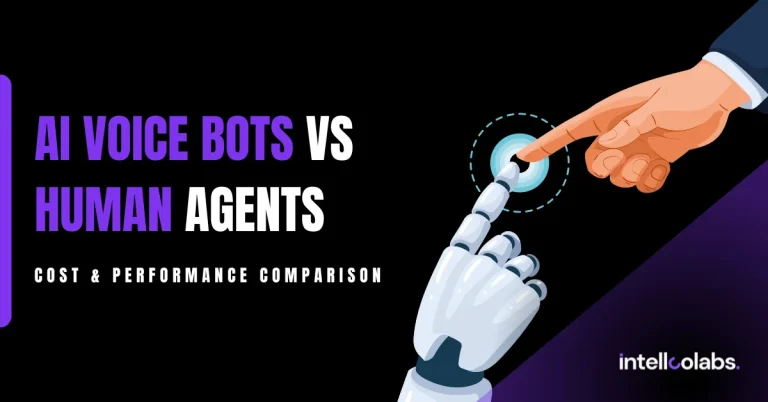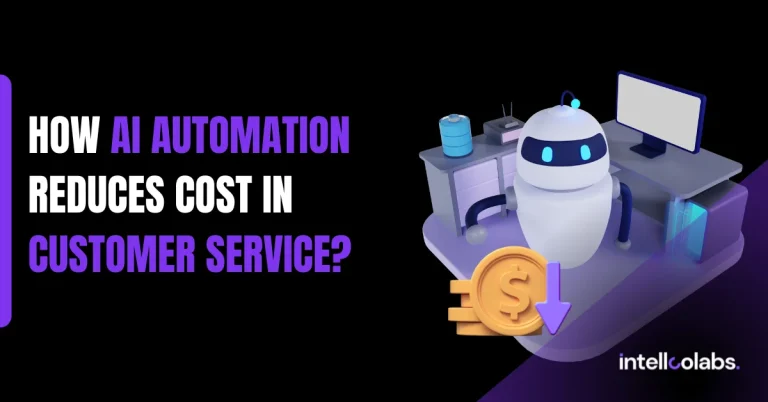
AI automation is reshaping the job market faster than most people expected. According to the World Economic Forum, over 75 million jobs could disappear by 2025 as machines take over more tasks once done by humans. This shift has raised serious concerns about mass unemployment.
As AI handles routine work more efficiently, many workers are beginning to worry about their job security. Roles in customer support, manufacturing, and even parts of finance and healthcare are already being affected. But does automation mean fewer jobs overall, or will it simply change the kind of work we do?
Let’s break down what this transformation really means and what the future of work might look like.
Key Takeaways
- The impact of ai automation on employment is a pressing concern.
- Millions of jobs may be displaced due to automation by 2025.
- Understanding the effects of ai automation is crucial for workers and businesses alike.
- The future of work is being reshaped by technological advancements.
- Preparing for the changes brought about by ai automation is essential.
The Current State of AI Automation
AI automation is changing the world of work fast. It’s key to know where AI stands now and how it affects different fields.
Recent Advancements in AI Technology
In recent years, AI has made big strides. Machine learning and natural language processing have improved a lot. Now, AI agents can do things humans used to do alone.
The Rise of AI Agents in the Workplace
AI agents are now part of our jobs, making work easier and faster. As AI technology gets better, we’ll see even more changes.
Industries Already Experiencing Automation
AI is already changing many industries. Manufacturing, customer service, and transportation are seeing big changes thanks to AI.
Case Studies of AI Implementation
Companies like Amazon and Tesla are leading the way with AI. Amazon uses AI for managing stock and helping customers. Tesla uses AI for its self-driving cars.
Historical Context: Technology and Employment
As we face the AI automation wave, knowing the past is key. The link between tech and jobs has always been complex. It’s a story of both creation and loss.
Past Industrial Revolutions and Job Displacement
The Industrial Revolution changed work in the 18th and 19th centuries. Machines took over many jobs, especially in textiles. This led to a lot of workers losing their jobs.
Lessons from Previous Technological Shifts
Even with big changes, new jobs and growth often followed. For example, the assembly line brought new roles in management and maintenance.
How Workers Adapted to Change
Workers learned new skills to fit into the changing job market. They mastered new machines and processes. This was crucial for their survival and growth.
History teaches us that tech can both take away and give new jobs. Knowing this helps us deal with today’s AI challenges.
Will AI Automation Lead To Mass Unemployment?
The impact of AI on jobs is a big worry. We need to look at what experts say and economic forecasts. As AI gets better, many wonder if it will cause a lot of job losses.
Expert Predictions and Economic Forecasts
Experts have different opinions on AI and jobs. Some say AI will replace some jobs but also create new ones. This could mean more jobs overall.
A report by the McKinsey Global Institute says up to 800 million jobs might be lost by 2030. But, it also notes that new jobs and industries could pop up.
Sectors Most Vulnerable to AI Displacement
Some areas are more likely to see jobs lost to AI. These include:
- Manufacturing, where robots and machine learning algorithms are increasingly being used.
- Transportation, with the advent of self-driving vehicles.
- Customer service, where chatbots are becoming more prevalent.
Job Creation in the AI Era
AI automation might replace some jobs, but it also brings new opportunities. As AI technology gets better, it opens up new ways to innovate and create jobs. This change is not just about replacing humans with machines. It’s about making humans better and creating new roles we’ve never seen before.
New Roles Emerging from AI Technology
The growth of AI technology is leading to new job roles. One big area is in the development and upkeep of AI systems themselves.
AI Maintenance and Oversight Positions
As AI agents become more common in industries, the need for people to maintain and oversee them grows. This includes jobs like AI ethicists, AI trainers, and AI system auditors.
Skills Required for the Future Workforce
The future workforce will need to work alongside AI technology. They’ll need skills like working with data, understanding AI outputs, and making decisions based on AI insights.
| Skill | Description |
|---|---|
| Data Analysis | Ability to interpret and make decisions based on data provided by AI systems. |
| AI Literacy | Understanding how AI works and how to effectively use AI tools. |
| Strategic Thinking | Capability to make strategic decisions using insights from AI. |
Economic Implications of AI-Driven Job Changes
AI is changing the job market in big ways. It’s affecting wages, income inequality, productivity, and economic growth. These changes are significant and far-reaching.
Potential Impact on Wages and Income Inequality
AI could change how we earn money. It might make us more productive but could also lead to job loss. Those whose skills match AI’s might do well, while others could struggle. This could widen the gap between different workers.
Productivity Gains and Economic Growth Potential
But AI could also boost our economy. It can automate tasks, freeing us up for more creative work. Experts say AI could add trillions to the global economy, opening up new opportunities.
Distribution of AI-Generated Wealth
How AI wealth is shared is key. Policymakers must figure out how to fairly distribute AI’s benefits. Fair distribution could help avoid negative social and economic effects.
Policy Responses to AI Automation
Policymakers are working hard to help workers and keep the economy strong as AI changes jobs. Governments are trying to find good ways to deal with the problems AI brings. They want to make sure everyone benefits from new technology.
Government Initiatives and Regulatory Frameworks
Many countries are starting programs to help workers deal with AI. They offer training and education to keep people skilled. They also make rules to make sure everyone gets a fair share of the benefits.
Some governments are setting up special groups to watch how AI affects jobs. For example, they might look at how to help people who lose their jobs because of AI. Here’s a look at some of these efforts:
| Country | Initiative | Focus Area |
|---|---|---|
| United States | Workforce Innovation and Opportunity Act | Training and Education |
| Finland | AI Training Programs | Upskilling Workers |
| Singapore | Professional Conversion Programmes | Career Transition Support |
Universal Basic Income and Alternative Economic Models
Universal Basic Income (UBI) is getting more attention as a way to handle AI’s job changes. People think UBI could help those who lose their jobs because of technology.
Corporate Responsibility in the AI Transition
Companies are also important in the AI shift. Many are starting to help their workers get new skills. This way, they can help soften the blow of automation and make sure everyone gets a fair share of AI’s benefits.
Preparing for an AI-Automated Future
As AI technology gets better, getting ready for an automated future is key for everyone. The way to do well in this new world is through education and reskilling programs. These help workers keep up with new job needs.
Education and Reskilling Programs
It’s important to invest in education and reskilling for the workforce. These programs should teach about new technologies and human-centric skills. These skills work well with AI.
Developing Human-Centric Skills AI Cannot Replace
Skills like creativity, critical thinking, and emotional intelligence are vital for the future. These skills are hard to automate. They will stay important in an AI-driven economy.
Individual Strategies for Career Resilience
To stay strong in your career, be adaptable, keep learning, and get diverse skills. This way, you can handle the changing job market well.
End Note
The impact of AI on jobs is complex, with both good and bad sides. As AI gets better, AI agents will greatly shape the future of work.
AI might take some jobs, but it also brings new chances for growth and innovation. By understanding AI’s impact on jobs, we can get ready for the changes. This way, everyone can benefit from AI.
We need to focus on skills that work well with AI, like thinking critically and being creative. This will help us use AI to grow the economy and make things more efficient.






